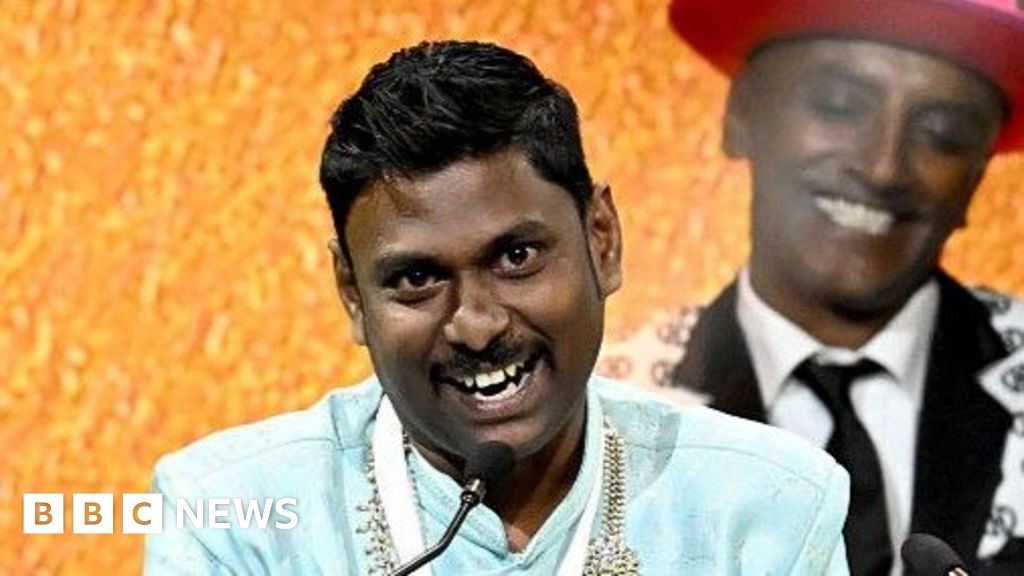In Manhattan’s West Village, Chef Vijay Kumar is shaping a quiet revolution. His 2025 James Beard Award win for Best Chef: New York State is more than just personal recognition – it marks a cultural inflection point. Chennai-based culinary historian Rakesh Raghunathan says Kumar’s recognition reflects a growing momentum for south Indian voices on the global culinary stage. Tamil cuisine is increasingly being embraced by global diners as something refined, rich, and deeply rooted in culture.
Kumar was born in the small farming village of Arasampatti, Madurai in southern Tamil Nadu. He has always cooked from memory – of forests and foraging, firewood stoves and his mother and grandmother serving meals made from scratch for the family. When he took the stage at the JB awards ceremony, he said “the food I grew up on, the food made with care, with fire, with soul is now taking the main stage”.
For Kumar, the win is a personal milestone but also a powerful act of visibility. “When I started cooking, I never thought a dark-skinned boy from Tamil Nadu could make it to a room like this,” he said in his acceptance speech. He wore veshti, the traditional Tamil attire for men, for the black-tie James Beard ceremony as a nod to his roots.
Recently, Kumar was trolled by a pair of influencers in New York, but Padma Lakshmi came to his defence, calling the influencers out for their cultural insensitivity. Lakshmi said “Vijay’s story is important not just for south Indian food but also as a story of someone who grew up with humble means and cooked with limited resources.”
Kumar’s journey wasn’t smooth to start with. Unable to afford engineering school, he chose culinary school instead, beginning his journey at Taj Connemara hotel in Chennai. He cooked his way through cruise ships and kitchens, and eventually found his promised land in America, working at Dosa in San Francisco. His real breakthrough came when he partnered with Roni Mazumdar and Chintan Pandya to open Semma – a Tamil slang word for “fantastic” in 2021.
The trio found a “shared sense of wanting to honour our heritage, to tell the world who we really are through our cuisine”. Kumar jumped at the opportunity to share his cuisine with the world. “His eyes lit up when we started talking about the food we grew up eating, and that kind of food rarely makes it to restaurant menus,” recalls Mazumdar.
Kumar’s strength lies in serving authentic village food that is seasonal, hyper-local, and built entirely from scratch. His farm-to-table approach was to cook the way “my mother and grandmother did”. Semma is a celebration of that simplicity. The menu defies the clichés that often define Indian food abroad, with dishes like pepper rasam, tamarind crab, and banana flower vadai.
Semma’s menu offers an emotional connection for many diaspora diners, and a revelation for first-timers. Kumar’s intention to bring village-style Tamil food and showcase it in upscale spots has won a long line of admirers. There’s depth, regionality and a powerful emotional connection in this food. The cocktails are a nod to Tamil film stars, and the décor channels Chennai’s warmth.
The awards and accolades feel like a natural progression of his journey. Semma is the first New York restaurant serving only south Indian cuisine to win a Michelin star and topped The New York Times’s list for top 100 restaurants. And now the JBA for Kumar. In many ways, Kumar is not just serving food – he is serving memory, pride and a quiet revolution. His James Beard win is a recognition of his talent, but also an affirmation that regional Indian cuisine belongs at the centre of the global table.
Kumar’s win has piqued the “curiosity of young people from all over the Indian diaspora and instilled a greater pride in our food ways”, says Lakshmi. “This will be his greatest legacy.” Adds Mazumdar, “This win is a signal that regionality matters, and that our stories and our roots have value on the world stage.”
Source link




